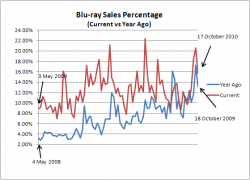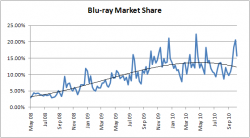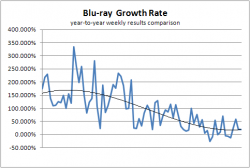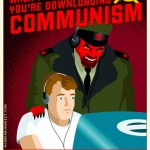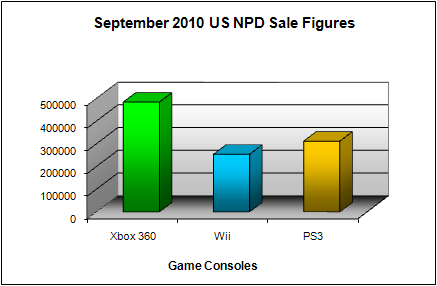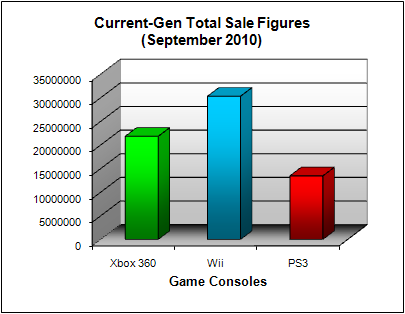Welcome to the Halloween edition of WNR. In this issue, you’ll read about extra scary stories about how big business is taking away your civil rights with the support of both major sides of politics, how your privacy is being invaded by greedy corporations, and how enterprising law firms are planning to make millions by suing you for downloading porn (whether you did it or not).
So basically the same as usual, I guess.
Actually, it’s not the same as usual, because there has been a real lack of news this week. I have to say some of it is down to me being extra busy this week, but I really did try and find news, honest! And I guess you might also be busy what with the last minute costume changes, the stocking up of rotten eggs/toilet paper, or if you’re just high on candy, so let’s make this quick.

In Copyright news, LimeWire has finally closed its doors. After it lost a major lawsuit in May, the consensus was always that it would be only a matter of time before the music sharing website had to close down, but the dreaded change finally took place this week.
If you go to the LimeWire website now, you’ll see an official notice simply saying that the website is under a court injunction to stop distributing the LimeWire software, with a link to the actual court orders. The owners of LimeWire still plans to launch a legal version of the website/tool, much like how Napster went legit, but that all depends on the amount of damages that LimeWire has to pay.
With LimeWire gone, the illegal music sharing world is very much now just a collection of Torrent sites and P2P networks, nothing to centralised that it can be sued out of existence anyway. And however much money has been spent fighting websites like LimeWire, the issue of piracy still exists, and it was only through innovation (iTunes, cheaper tracks, no DRM, Spotify …), that there is actually some proper “competition” to illegal downloads. But if the industry keeps on pushing, and force people to adopt new ways to download that more effectively hides their activities, then there aren’t going to be big, soft targets like LimeWire (or even The Pirate Bay) to sue any more, and all while the downloads continue. So for their sake, I hope they do take innovations seriously and try different models, even if some will ultimately fail, because what they’re doing now certainly isn’t succeeding (despite the court “victories”).
And a couple of issues ago, I mentioned the Warner lawsuit against Triton Media (that’s the Triton Media of Scottsdale, Arizona, not the Triton Media Group that comes up top in the Google results). Well, this week, Warner has won its case against Triton. A refresher on what the case was about – basically, Triton Media acted to provide advertising to websites that possibly hosted illegal streams and downloads, and at the same time, it also ran its own possibly illegal streaming website. And instead of acting like a traditional online advertising company, Triton apparently went the extra step of helping to act as a sort of match-maker in matching potential advertisers to websites. And it’s these actions that has ultimately led them to lose the case.
The dangers of this precedent is that it could then allows studios to sue the likes of Google and Yahoo, both of whom have their own advertising networks. With so many publishers signing up to Google and Yahoo’s advertising programs, and with so many ads being served for all kinds of keywords and on all kinds of web pages, it should be easy for studios to find advertising links to illegal streaming/downloads, advertising showing up on searches for illegal downloads, and advertising revenue flowing to publishers of these sites. Suing a small fish like Triton will make it easier to sue a big fish like Google. But unlike Triton, Google has no personal, one on one relationship with most of its publishers and advertisers. And Google certainly don’t run their own video streaming website that may be serving up pirated content … oops, forgot about YouTube. In any case, there seems to be a shift towards suing revenue sources for piracy websites, but it still won’t stop those that are not engaging in piracy for profit, which I think would account for the majority of downloads these days.
Which brings up to a rather strange story this week. A developer who says he has come up with an anti-piracy platform has decided to protest the fact that nobody in the industry seems to be taking him seriously by, wait for it, turning his anti-piracy tool into a MP3 download website. Apparently, the tool allows for instant monitoring and searching of source of illegal content, and so would allow content owners to easily identify where pirated copies existed, and get them removed (it appears to be a tracking tool for HTTP based piracy, not for Torrents). But when the developer, only known as Dominic, was ignored by the various anti-piracy organisations after demonstrating his tool, the same tool that found illegal downloads now served them up to anyone who wanted them, as a form of protest. And it appears his stunt worked, sort of, and he has had to remove the downloads after a cease and desist notice from the Australian Music Industry Piracy Investigations organisation was sent to his web host.
Apart from ignoring the potential of his anti-piracy tool (which, if the served up MP3s were any example, it works quite well), Dominic also protest what he sees as “contradictions, corruptions, ignorance, and an overwhelming fear of change” that’s rife in the entertainment industry. From his work, he has also identified companies and even governments that advertise on websites that distribute illegal content (he has a list of them up on his website), some of them the very companies “going after mums, dads, kids, ISP’s, and pretty much anyone else they can think of” when it comes to illegal downloads.
And unfortunately, that was pretty much that in terms of news this week. I know, it’s barely three stories. I guess I could have mentioned something about the Sony PlayStation phone (as a recent convert to Android, adding dedicated game controls makes perfect sense), anything on the Black Friday sales, or even the news that Spotify may be closing in on a deal that could see the service arrive in the US. But hopefully, there will be more next week.
So for the rest of the WNR, I shall dazzle you with some Blu-ray sales graphs, showing you whatever you want to see depending on your point of view, something that stats and graphs are very good at showing. See you next week.
This first graph shows year-on-year comparisons for weekly results based on Blu-ray’s market share. Notice how the differences have narrowed in recent month, mainly on the backs of the previous year’s figures shooting up.
This second graph simply show Blu-ray market share over time, note the flattening trend, but as with any sort of sales, there are seasonal variations and we’ve yet to his 2010’s peak month.
And this third graph shows the Blu-ray growth rate, basically taking weekly market share figures and comparing them to the same week a year ago, and then plotting the growth (or decline). Again, notice how growth has slowed, and there even a few weeks of decline, but things will pick up again slightly in the next few months. And as with measuring any kind of growth, a slow down doesn’t necessarily mean a bad thing, because going from 5 to 10 may be a 100% increase, but going up by the same amount from 10 to 15 is only a 50% increase.



